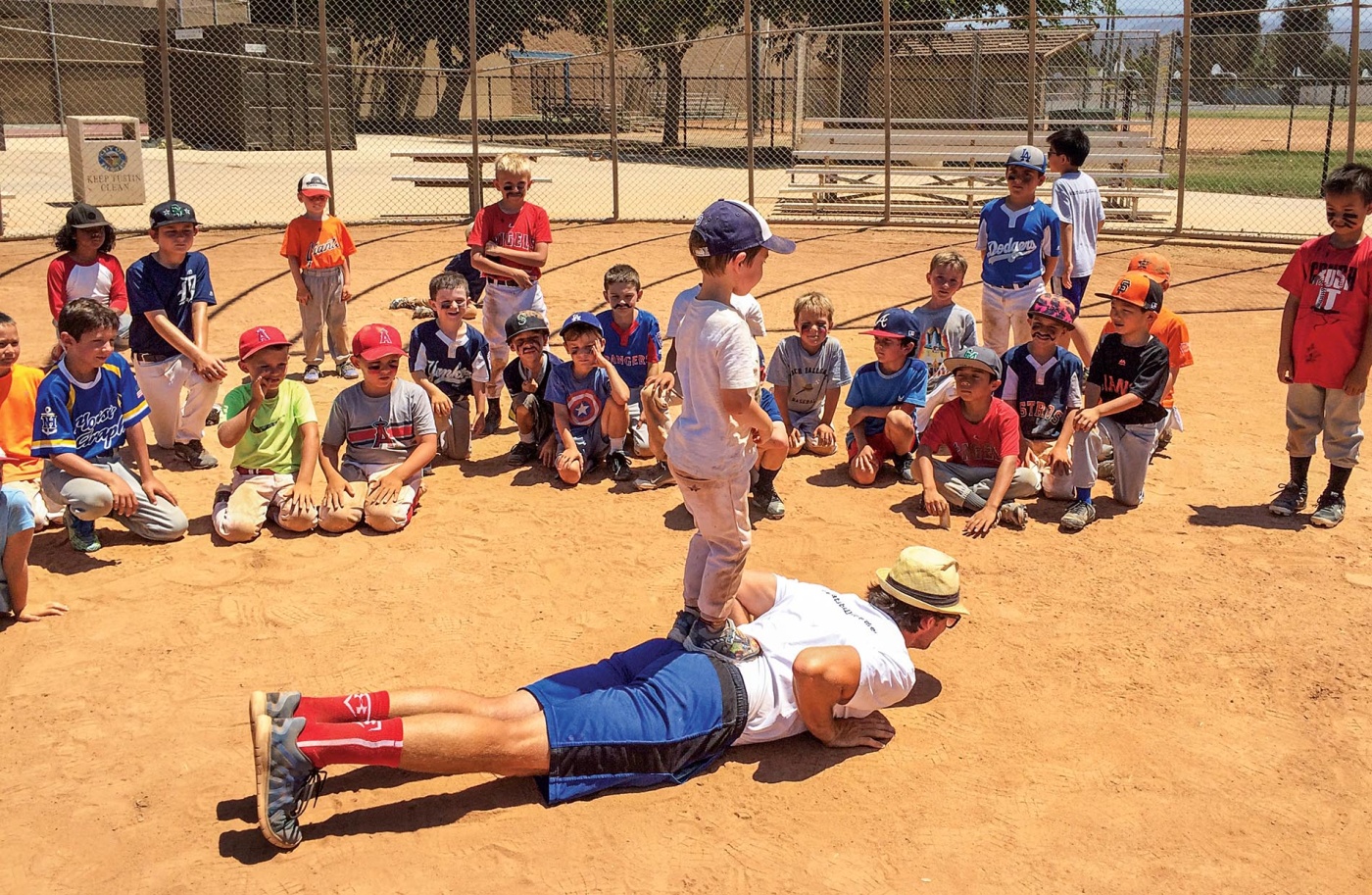Game Changer
“Coach Ballgame” is putting the fun back in youth sports
James Lowe ’05 is candid about the moment his life plan started to change. As a Brown baseball star with Big League dreams, he stood at the plate facing a young Justin Verlander (a future hall-of-famer, then pitching for Old Dominion). After ball one in the dirt, two blistering fastballs streaked by for strikes, one Lowe barely saw and the other he just managed to foul off. Then Verlander dropped the hammer: a high curveball that dropped off the edge of the Earth and into the zone for strike three. Lowe had just seen what Big League looks like. If he couldn’t believe his eyes, his guts were harder to ignore.
“I didn’t throw up, but I dry heaved,” he said with a chuckle. “That was the moment I knew I’m destined to be a youth baseball coach.”
Twenty years later, Lowe has become more than that. He’s better known today as Coach Ballgame, a youth coaching guru, a major league baseball youth ambassador, and a persistent presence in the social media feeds of sports parents nationwide. With his dulcet North Carolina drawl, an infectiously goofy wit, and his signature fedora, Lowe spreads a gospel to parents and coaches alike: Youth sports are supposed to be fun and character-building. If they’re not, you’re doing it wrong.

As Lowe can attest, even the best youth players are highly unlikely to go pro. But that hasn’t stopped coaches and parents from turning youth sports into a win-at-all-costs pressure cooker that produces far more quitters than all-stars. That’s the culture that Coach Ballgame is out to change.
At player and coaching clinics he holds around the country, Lowe stresses a fun-first philosophy. His ethos reflects some advice Lowe got from a friend and fellow coach early in his career: “None of these kids are going to make it to the majors,” Lowe recalls his friend saying. “But they’ll probably be mothers and fathers. They’re all going to be servers of their community. We need to be life coaches first, and baseball coaches second.”
Lowe says he learned the secret to great coaching at Brown—from beloved theater professor Lowry Marshall. “She taught me to listen, to get outside of my own head by giving and listening to others,” Lowe says. “Same applies as a coach. You have to listen. My number one pillar is to build trust.”
Lowe builds trust by getting to know every kid he coaches. He learns a little about their lives, their personalities, and their interests, and gives each of them a nickname to match. Once trust is built, the formula is simple: Reward hustle, teamwork, and character, sprinkle in a few fundamentals. The goal is to nurture kids’ love of the game and keep them on the field long enough to learn all the life lessons baseball has to offer. Chief among them: how to deal with adversity. Every strikeout, every tough game on the mound, every dropped fly ball is an opportunity for growth. “Baseball isn’t life or death,” Lowe says, “but dealing with adversity—that could be.”





